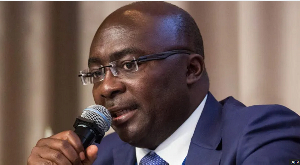A research undertaken by the Ghana International Trade and Finance Conference has revealed that the 54 member states of Africa are heavily indebted to the tune of 1.215 trillion dollars.
It also mentioned Africa’s average inflation as 12.2 per cent, total population 1.34 billion people, total unemployment rate 7.7 per cent, average lending rate 19.5 per cent and average growth rate at 3.8 per cent.
Mr Selasi Koffi Ackom, the Chief Executive Officer of GITFiC, made this known when he briefed the press on the upcoming 8th Ghana International Trade and Finance Conference, which is scheduled to take place on Friday, September 6, 2024.
The conference on the theme: “A Call for a New Global Financing Pact: Collaborative Pathways to Economic Resilience and Global Prosperity,” would discuss Africa’s indebtedness.
The GITFiC is calling for Global Debt Initiative with its position paper; “Revisiting the Debt Burden on Developing and Least Developed Economies.”
Mr Ackom said the research used all eight economic indicators – IMF status, lending rate, inflation rate, unemployment rate, GDP, GDP growth, GDP per capita and gross ex-debt to sample all 54 member states on the African continent and applied the most current and accurate data to arrive at these economic statistics.
“This well researched indicators are made possible with insights from the World Bank, International Monetary Fund, AlFred Economic Data, Trade Economics Data, Statista, OECD, United Nations, among others,” he stated.
He said GITFiC had applied a common but comprehensive methodology to arrive at these indicators and that they rated the success of the entire work as 92.7 per cent accurate.
“By this, we intend to inform the African public, both domestic and external business communities and all stakeholders of the commitment of all member states and their respective programmes with the International Monetary Fund,” he stated.
Mr Ackom said, “This is because such policy credibility and structural adjustment programmes intends to have direct bearing on an economy, both fiscal and monetary.”
He said GITFiC’s focus was to determine the health of Africa’s economies pre and post COVID-19 in support of its call for a Global Debt Initiative as the medium to long term measure for fiscal space and economic growth.
Business News of Tuesday, 3 September 2024
Source: GNA
Africa is heavily indebted to the tune of 1.215 trillion dollars – GITFiC
Entertainment
















